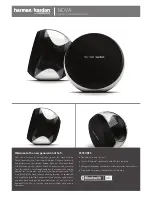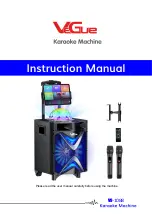
Grind longitudinal on the
grinding wheel
Don’t grind across
the grinding whee
l
Flat tip
2.5 times tungsten diameter
Pointed tip
Flat spot diameter
Included angle
TUNGSTEN ELECTRODES RATING FOR WELDING CURRENTS
Tungsten Diameter (mm)
Diameter at the Tip (mm)
Constant Included Angle (°)
Current Range (Amps)
Current Range (Pulsed Amps)
1.0mm
0.25
20
11079
22037
1.6mm
0.5
25
18476
05 - 100
1.6mm
0.8
30
25842
10 - 140
2.4mm
0.8
35
33208
12 - 180
2.4mm
1.1
45
15 - 150
15 - 250
3.2mm
1.1
60
20 - 200
20 - 300
3.2mm
1.5
90
25 - 250
25 - 350
TUNGSTEN PREPARATION
Always use DIAMOND wheels when grinding and cutting. While tungsten is a very hard material, the surface of a diamond wheel is harder, and this
makes for smooth grinding. Grinding without diamond wheels, such as aluminium oxide wheels, can lead to jagged edges, imperfections, or poor surface
finishes not visible to the eye that will contribute to weld inconsistency and weld defects.
Always ensure to grind the tungsten in a longitudinal direction on the grinding wheel. Tungsten electrodes are manufactured with the molecular structure
of the grain running lengthwise and thus grinding crosswise is “grinding against the grain.” If electrodes are ground crosswise, the electrons have to jump
across the grinding marks and the arc can start before the tip and wander. Grinding longitudinally with the grain, the electrons flow steadily and easily to
the end of the tungsten tip. The arc starts straight and remains narrow, concentrated, and stable.
ELECTRODE TIP/FLAT
The shape of the tungsten electrode tip is an important process variable in precision arc welding. A good selection of tip/flat size will balance the need
for several advantages. The bigger the flat, the more likely arc wander will occur and the more difficult it will be to arc start. However, increasing the flat
to the maximum level that still allows arc start and eliminates arc wonder will improve the weld penetration and increase the electrode life. Some welders
still grind electrodes to a sharp point, which makes arc starting easier. However, they risk decreased welding performance from melting at the tip and the
possibility of the point falling off into the weld pool.
ELECTRODE INCLUDED ANGLE/TAPER - DC WELDING
Tungsten electrodes for DC welding should be ground longitudinally and concentrically with diamond wheels to a specific included angle in conjunction
with the tip/flat preparation. Different angles produce different arc shapes and offer different weld penetration capabilities. In general, blunter electrodes
that have a larger included angle provide the following benefits:
• Last Longer
•
Have better weld penetration
•
Have a narrower arc shape
•
Can handle more amperage without eroding.
Sharper electrodes with smaller included angle provide:
• Offer less arc weld
•
Have a wider arc
•
Have a more consistent arc
The included angle determines weld bead shape and size. Generally, as the included angle increases, penetration increases and bead width decreases.
34
| VIPER MIG 185 Manual
DC TIG WELDING GUIDE















































